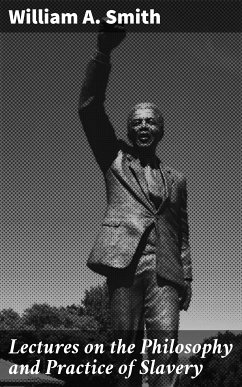In "Lectures on the Philosophy and Practice of Slavery," William A. Smith presents a profound examination of the sociopolitical and ethical dimensions of slavery in the antebellum South. His work is characterized by a compelling blend of rhetorical prowess and philosophical inquiry, reflecting the prevailing attitudes of his time while simultaneously challenging readers to contemplate the moral implications of human bondage. Smith employs a didactic style that interlaces historical analysis with personal anecdotes, engaging his audience in a critical dialogue about the institution of slavery and its justifications. This text not only serves as a historical artifact but also as a reflection of the intellectual currents that shaped American thought on slavery during the 19th century. William A. Smith, a prominent Presbyterian minister and educator, was deeply entrenched in the cultural and political landscape of his time. His role as an academic leader and a slaveholder himself informed his perspectives, which are nuanced and at times contradictory. Smith's lectures were aimed at a scholarly audience, illustrating the complexities and justifications of slavery within the Southern cultural milieu. His position within the theological discourse of the period helped to propagate certain ideologies surrounding race and morality. This book is essential reading for scholars of American history, religion, and ethics, as it provides incisive insights into the justifications surrounding slavery and the societal norms of the era. Smith'Äôs work challenges readers to reflect on the moral contradictions of his arguments while situating them within a broader historical framework. It is a crucial addition for those seeking to understand the philosophical underpinnings of slavery and its enduring impact on American society.
Dieser Download kann aus rechtlichen Gründen nur mit Rechnungsadresse in A, B, BG, CY, CZ, D, DK, EW, E, FIN, F, GR, H, IRL, I, LT, L, LR, M, NL, PL, P, R, S, SLO, SK ausgeliefert werden.









